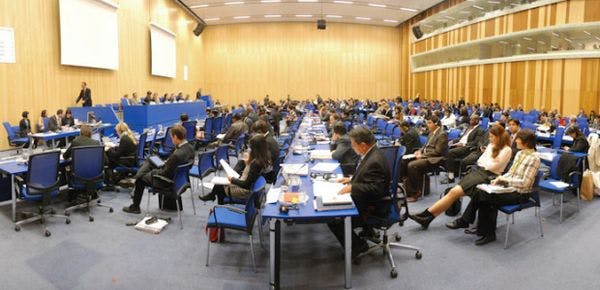UN drugs meeting opens after historic reforms shatter consensus on drug control system
VIENNA (11 March 2014) — The UN Commission on Narcotic Drugs, the chief drug policymaking body at the United Nations, will open its annual meeting this week after a year of historic reforms.
This year’s UN Commission on Narcotic Drugs (CND)—which is taking place Vienna from 13-21 March—is expected to be unusually contentious after a monumental 2013-2014. Unprecedented reforms have shaken the foundations of global drugs policy and set the stage for an explosive international debate. These changes include:
- The Organization of American States report that envisioned a post-drug war world, including consideration of treaty reform, the first time a multilateral body had done so.
- Uruguay becoming the first national jurisdiction in the world to legalise cannabis.
- The opening of the world’s first legal, recreational cannabis market in Colorado.
- Colombia and Guatemala’s momentous stand at the UN General Assembly, where they asserted the drug war had failed that it was time for an international debate about reform.
- The withdrawal of counter-narcotics aid from the United Nations Office on Drugs and Crime’s drug control program in Iran due to human rights concerns.
The meeting itself is likely to feature standoffs between reform-oriented countries and governments that favour failed criminal justice models, which have resulted in mass incarceration and rampant human rights abuses such as the death penalty for non-violent drug offences. Meanwhile, a number of countries in Europe and Latin America are expected to argue for public health approaches, decriminalisation of minor possession, harm reduction and to urge a consideration of alternative regulatory models.
Joanne Csete, deputy director of the Open Society Global Drug Policy Program said, “There will be no shortage of governments that seek to bury their heads in the sand and pretend these drug policy reforms aren’t happening. But try as they might, the movement for drug law reform is unstoppable.”
Ann Fordham, executive director of the International Drug Policy Consortium said, “It is a pivotal moment in the drugs debate. It is no longer a question of if global drug policy needs to be reformed but a question of when and how. Denial that change is coming is not a sustainable position for governments to take.”
The past year in drug policy reform at a glance:
- March 2013: Denmark withdraws its drug control funding from UNODC’s Iran country program citing human rights concerns.
- May 2013: OAS Report envisions alternatives to the war on drugs and even reform of the drug control treaties, the first time a multilateral body has done so.
- June 2013: Latin American countries push for a new approach at the General Assembly of the Organization of American States.
- September 2013: Colombia’s President Juan Manuel Santos, tells the UN General Assembly, “The convention that gave birth to the war on drugs was approved. Today, we must acknowledge, that war has not been won.”
- September 2013: Guatemala’s President, Otto Perez Molina, urges countries to experiment with new approaches to drug policy in front of the United Nations General Assembly.
- September 2013: The US Federal Department of Justice announces that it will allow Washington and Colorado’s regulations to go into effect.
- November 2013: Ireland confirms withdrawal of drug control funding from UNODC’s Iran country program citing human rights concerns.
- December 2013: Uruguay becomes the first country in the world to legalise marijuana.
- January 2014: Colorado’s marijuana market comes online. It is the first jurisdiction in the world to offer cannabis for non-medical use.
- February 2014: The US state of Alaska files signatures to hold a referendum on the legalisation of cannabis in August.
- February 2014: UK’s Deputy Prime Minister, Nick Clegg, says, “UN drug conventions badly need revising. I want European countries to work together to agree a common position in favour of reform to take to that discussion in 2016.”
About the High Level Segment/Commission on Narcotic Drugs.
For Live Updates from the High Level Segment and the Commission on Narcotic Drugs.
